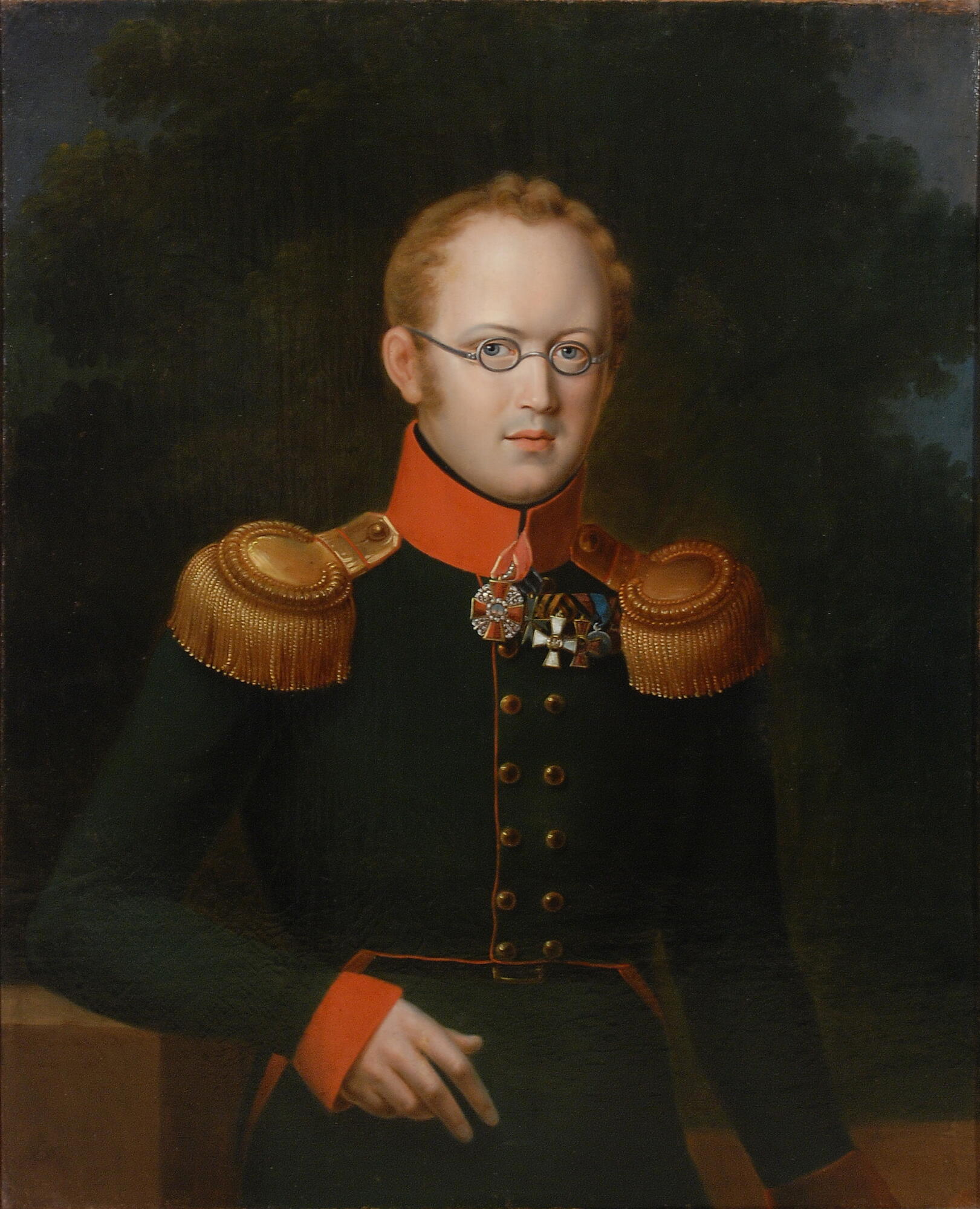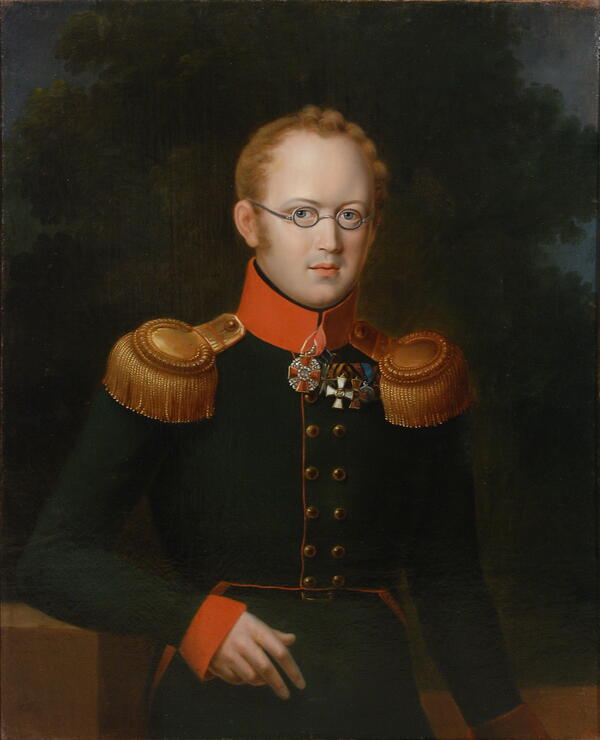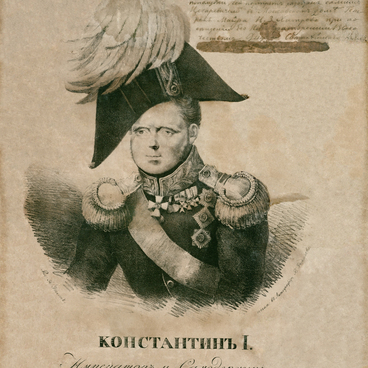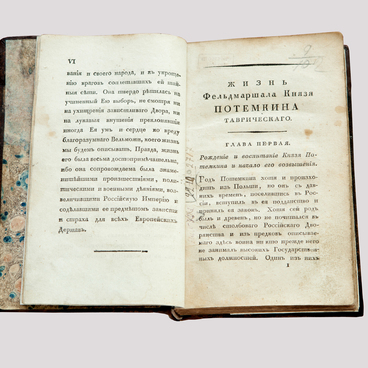The ceremonial half-length portrait of Engelhardt was created by the provincial artist A. Fedotov.
Andrei Vasilievich Engelhardt was a Smolensk nobleman, grand-nephew of His Serene Highness Prince Potemkin-Tavrichesky, cousin of Prince Bagration’s wife. Andrei Vasilyevich was famous for his quick-tempered character, so unrestrained that later he was even examined for sanity. Engelhardt received a good education at home.
In 1802, he joined the St. Petersburg Dragoon Regiment as a non-commissioned officer. He took part in the Hanover campaign of 1805–1806 and the Prussian campaign of 1807, during which he was seriously wounded in the leg. The injury caused gangrene and the leg had to be amputated.
However, the 27-year-old lieutenant of the Imperial Guards Chasseur Regiment did not want to retire and continued his service. Engelhardt wrote in his diary: “This first journey into the field of Mars took away the possibility of being a beggar on a horseback because it deprived me of a leg that would never grow again”.
Andrei Vasilievich took part in the Russian-Turkish war, the Patriotic War of 1812, and in the foreign campaigns of the Russian army. In 1812, Engelhardt was assigned to the corps of General Vincengerode, commanded 7 battalions and 12 guns. During the Battle of Borodino, he was a senior adjutant under Prince Bagration, “was sent to the most dangerous places with… orders and delivered them with excellent courage and speed”. After Bagration’s death, Engelhardt was under General Konovnitsyn, and in 1813 he was an officer-at-large under Barclay de Tolly.
Engelhardt retired only in 1814. Andrei Vasilievich was awarded many orders, including the Order of St. George of the 4th degree and the golden sword ‘For Bravery’. After retirement, Engelhardt lived with his family in Smolensk. In 1822, defending the honor of his wife, he offered two of his offenders the choice of a duel or punishment with rods, and they chose the latter. The investigation of this case reached the emperor, and by the Imperial command, Engelhardt was subjected to house arrest, and then to secret police surveillance.
Andrei Vasilievich Engelhardt was a Smolensk nobleman, grand-nephew of His Serene Highness Prince Potemkin-Tavrichesky, cousin of Prince Bagration’s wife. Andrei Vasilyevich was famous for his quick-tempered character, so unrestrained that later he was even examined for sanity. Engelhardt received a good education at home.
In 1802, he joined the St. Petersburg Dragoon Regiment as a non-commissioned officer. He took part in the Hanover campaign of 1805–1806 and the Prussian campaign of 1807, during which he was seriously wounded in the leg. The injury caused gangrene and the leg had to be amputated.
However, the 27-year-old lieutenant of the Imperial Guards Chasseur Regiment did not want to retire and continued his service. Engelhardt wrote in his diary: “This first journey into the field of Mars took away the possibility of being a beggar on a horseback because it deprived me of a leg that would never grow again”.
Andrei Vasilievich took part in the Russian-Turkish war, the Patriotic War of 1812, and in the foreign campaigns of the Russian army. In 1812, Engelhardt was assigned to the corps of General Vincengerode, commanded 7 battalions and 12 guns. During the Battle of Borodino, he was a senior adjutant under Prince Bagration, “was sent to the most dangerous places with… orders and delivered them with excellent courage and speed”. After Bagration’s death, Engelhardt was under General Konovnitsyn, and in 1813 he was an officer-at-large under Barclay de Tolly.
Engelhardt retired only in 1814. Andrei Vasilievich was awarded many orders, including the Order of St. George of the 4th degree and the golden sword ‘For Bravery’. After retirement, Engelhardt lived with his family in Smolensk. In 1822, defending the honor of his wife, he offered two of his offenders the choice of a duel or punishment with rods, and they chose the latter. The investigation of this case reached the emperor, and by the Imperial command, Engelhardt was subjected to house arrest, and then to secret police surveillance.



